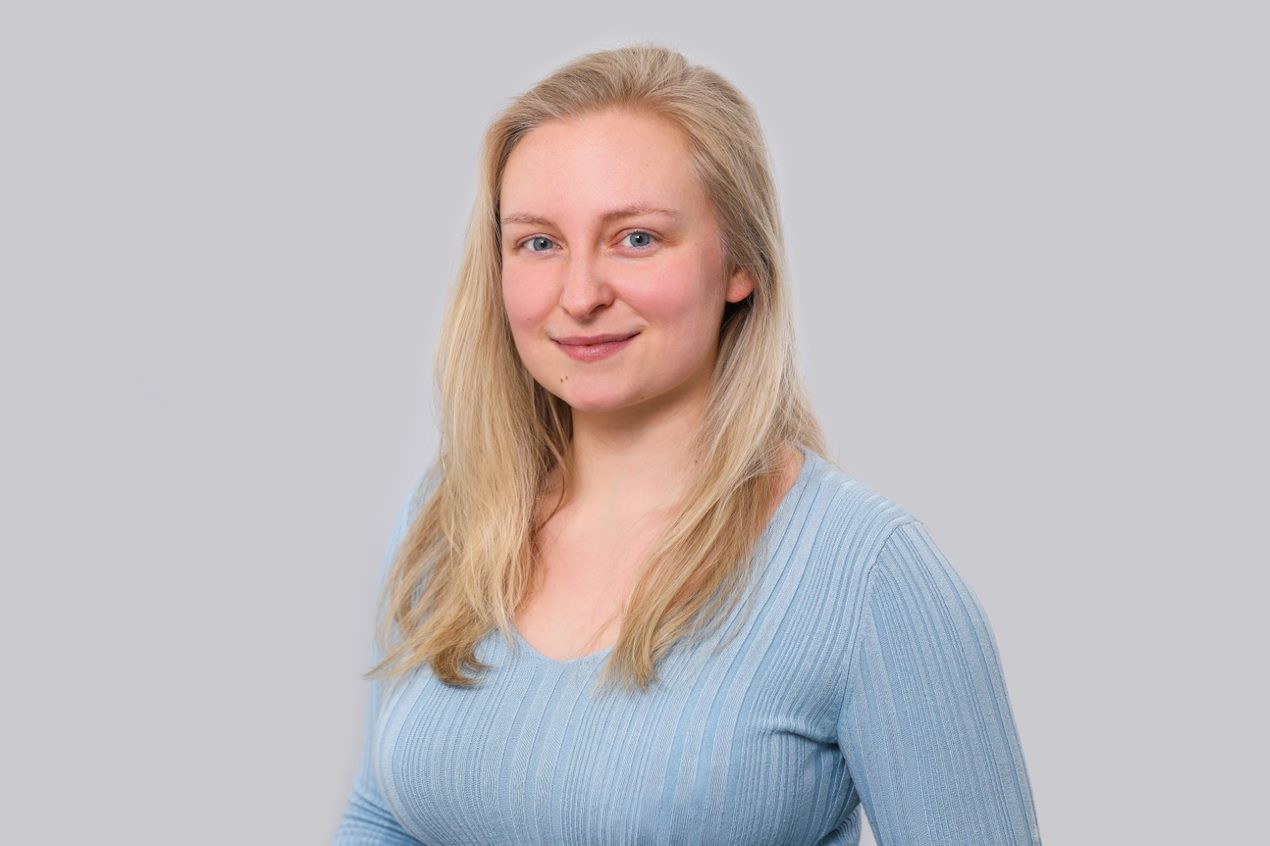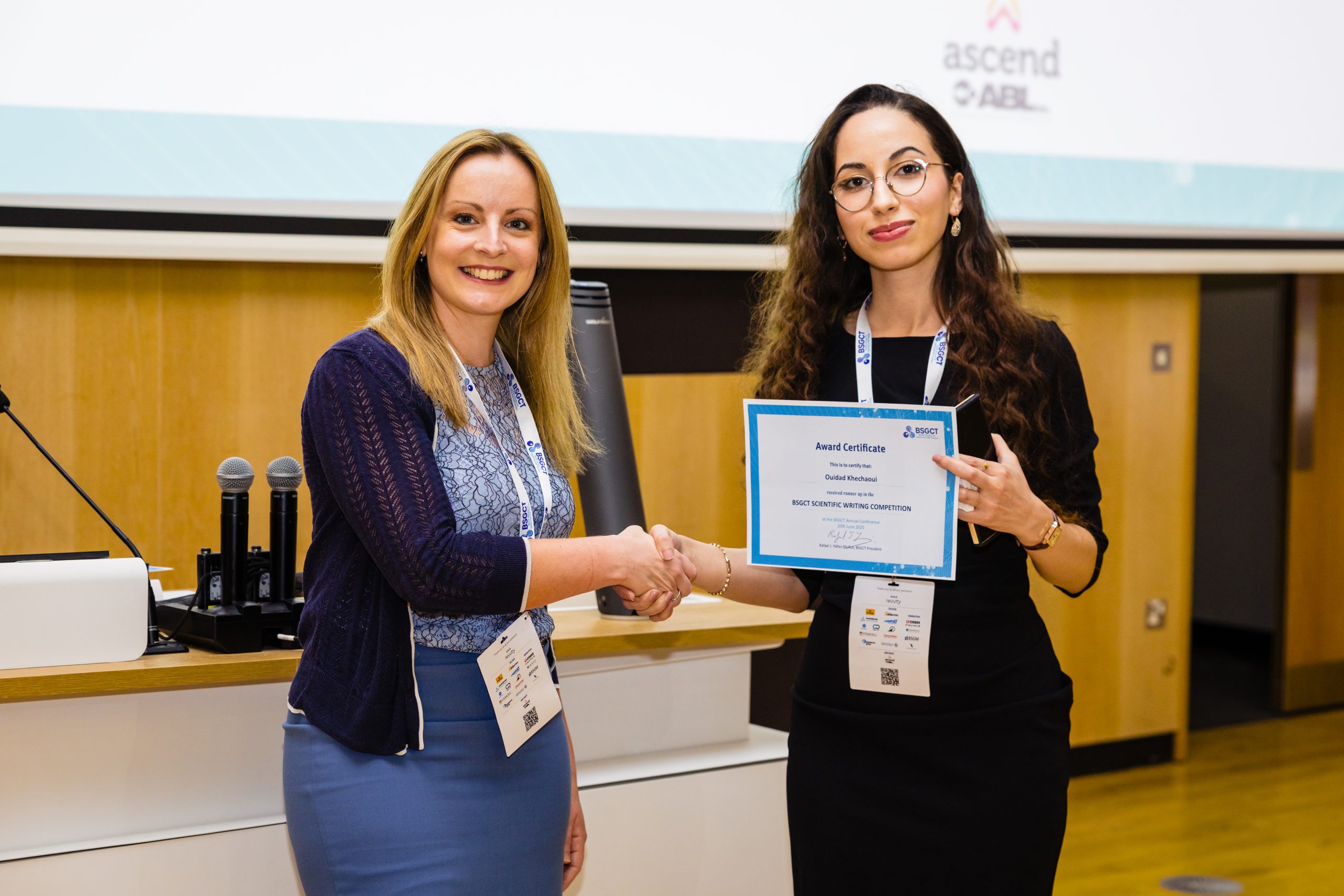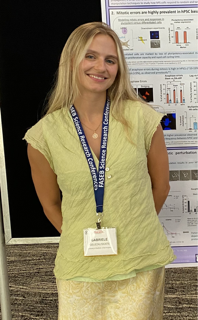Gene-ious at Work: Editing the Future for Patients with Sickle Cell Disease By Lucy Williams, PhD…

Researcher Spotlight
Biography:
I am a clinician in Ear, Nose & Throat surgery in London, and I am currently taking time out of training to undertake a Lewis Spitz Surgeon-Scientist PhD Fellowship in Prof. Jane Sowden’s lab at the Great Ormond Street Hospital Institute of Child Health at UCL. I have a particular interest in genetic forms of hearing loss and their emerging novel therapies, and at the moment I am working to better understand the hearing loss associated with Norrie disease and its potential treatments. Norrie disease is a rare X-linked recessive disorder that results in severe visual impairment from birth and progressive hearing loss starting in childhood, culminating in a devastating dual sensory loss. As part of our research our group is developing an intracochlear gene therapy to treat the hearing loss in Norrie disease.
What do you like to do when you aren’t researching?
Outside of the lab I like to keep fit and over the last few years have gotten into triathlons. I like them because the training is quite varied and hence not too boring! I have recently joined a triathlon club and am apprehensively looking forward to my first (and last) Ironman later this year!
What is the motivation behind your research/work?
The motivation behind my research comes from close collaboration with the Norrie Disease Foundation. This group of patients and families affected by Norrie disease is based in the UK but has a global reach via its online network. Our research group has been influenced by discussions with the Norrie Disease Foundation who have identified hearing preservation as a research priority. We continue to work closely with the Foundation on grants and research design, and last year jointly won the BSGCT PPIE Award for our efforts in establishing the Norrie Disease Conference, aimed at patients, families, clinicians and scientists to share findings and experiences related to this condition.
What is the most important thing you have learned working in this field?
Working in the field of gene therapy has required learning about the practicalities of translational science. The most important thing I have learned is that there are a broad set of attributes required to be a successful translational scientist, that go far beyond simply excelling at your own discipline. I have witnessed the importance of being able to hold an overview of all of the various components required to make progress with a new therapy, and knowledge of when to bring them into play to make timely progress. Translational scientists need to be able cross boundaries and recognise the need for collaboration with colleagues in business, regulation, communications and science, drawing on the expertise of people in these other domains to make progress in your own.
What made you decide to get involved with the BSGCT?
I got involved with BSGCT to deepen my understanding of the field and learn as much as possible from researchers leading the way. As a clinician there is so much to gain from connecting with a diverse group of academics and industry experts, and BSGCT provides a great platform for this. The best part of my involvement so far has been attending the BSGCT conference. The 2024 event was filled with inspiring speakers and had a very welcoming and encouraging atmosphere; particularly for early career researchers. It was a great opportunity to meet and interact with colleagues and I look forward to attending again in the future.



